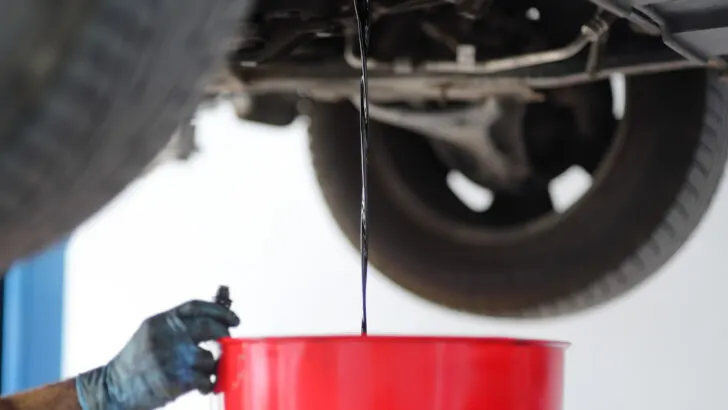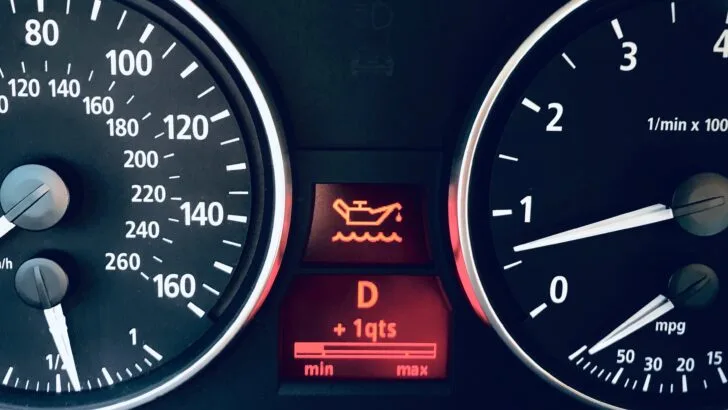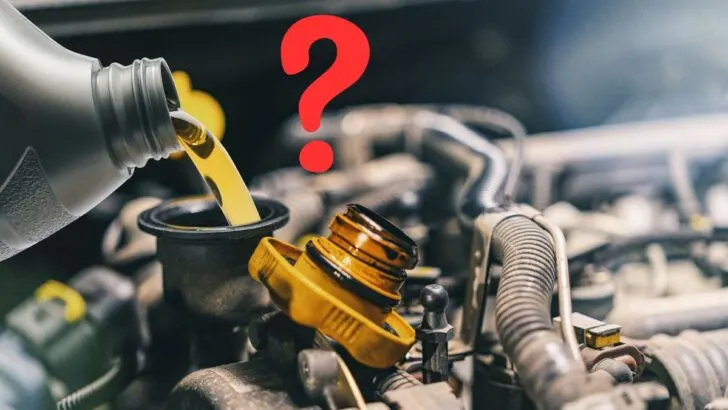Are you pushing the boundaries of your car’s oil change schedule? Curiosity piqued? In this article, we uncover the truth behind the recommended intervals for oil changes, ensuring you have the knowledge to keep your engine running smoothly and avoid any potential pitfalls.
Manufacturer guidelines typically suggest an oil change every 5,000 to 7,500 miles or every six months, whichever comes first, to ensure proper lubrication, prevent engine damage, and maximize the longevity of your vehicle. Factors such as the type of oil used, driving conditions, and the age of the engine can impact the optimal oil change frequency.
Join us as we dive into the realm of oil change intervals and equip you with the insights to make informed decisions for optimal vehicle maintenance.
Table of Contents
Why are Oil Changes Important?
Many people wonder why an oil change is necessary. Some feel that if you keep the oil topped off, you won’t need to change it out and can save yourself some time and money!
But there are various reasons an oil change will need to be done in your vehicle.
Reason #1 – Lubrication
This is the most obvious purpose of oil in your engine.
There are hundreds and sometimes even thousands of moving parts in an engine, which move at high rates of speed and generate friction and heat.
If these parts are not properly lubricated, they can become damaged, will overheat, and can stop working entirely.
Reason #2 – Cooling
Since many of the components do move at high rates of speed when the engine is running, friction can be a problem.
Friction creates heat, and heat can melt certain metals if it reaches a specific temperature.
Oil helps keep friction levels low, which in turn reduces heat and helps with keeping your engine cooler.
Reason #3 – Better Gas Mileage
While this one is not as common knowledge as the previous two, having a well-oiled engine can also help improve your gas mileage.
This, in turn, will reduce the cost of fuel at your next fill-up!
An engine that is running in perfect condition will not have to work as hard to get you from point A to point B, leading to better overall gas mileage.

Oil Change Intervals
Oil that has been in a vehicle for a long time can get much thicker than normal. This oil turns into a thick sludge and will not be able to move through the system as efficiently.
This can lead to some parts of the engine not receiving enough oil, or any oil at all, which can start causing overheating or friction issues.
Replacing damaged components in an engine is much more expensive than having an oil change done on a regular basis, so it’s always recommended that you stay on top of regular oil changes.
Most mechanics will suggest an oil change should be done every 3,000 miles the vehicle is driven. For average drivers, this can come about every 3-4 months.
However, as engine technology has advanced over the years, many vehicles can go much longer distances without needing an oil change.
Some modern cars and small trucks can go up to 7,500 miles between oil changes, while cars that use a synthetic oil blend can even go up to 15,000 miles between oil changes.
This is an incredible difference over the normally recommended 3,000 miles and helps save you money too.
Always be sure to check your vehicle’s user manual to see how often an oil change is recommended for your brand and model of vehicle.
Your vehicle may also have an oil monitoring system on the dash which can help give you a good idea of how efficient the oil is and when an oil change is needed depending on your specific driving habits.
Frequent Oil Change Causes
The frequency of oil changes will depend on your driving habits. If you only drive a few times a week, your vehicle can go considerably longer between oil changes.
If you drive long distances daily or under severe conditions, oil changes will be needed more often.
Some severe driving conditions can include:
- Constant stop-and-go traffic
- Extremely dusty or sandy roads
- Hauling extremely heavy loads
- Driving short distances in freezing temperatures
Being proactive on your oil changes can ensure your engine does not become damaged.
Components that are regularly lubricated will not become overheated, warped, or cracked which saves you hundreds and even thousands of dollars in potential repairs.

Oil Change Warning Signs
Knowing when you need an oil change can be as simple as looking at the dashboard and checking your oil indicator light. However, not all vehicles have this indicator, and in some cases it may not be working correctly.
There are other warning signs you can look for that will let you know when an oil change is needed. These can include:
- Color or consistency change in the oil during a dipstick check
- Smell of oil burning due to the overheating of the engine
- Knocking or grinding sounds from the engine
If you notice any of these signs or think you may still be due for an oil change, scheduling an appointment with your local mechanic would be best.
Oil changes are a quick and simple process that can usually be done within 20 minutes, having you back on the road and on your way in no time!
Potential Engine Damages
If you skip your oil changes and ignore the need to have one done, your engine can suffer.
In minor cases, pistons may need to be replaced due to cracking under heat, but the entire engine may need to be replaced in severe cases.
Oil helps keep the engine cool and well below the overheating limit. If your engine overheats, moving parts can seize up and stop moving.
Thick sludgy oil can be prevented from reaching the areas it needs to lubricate, leading to metal-on-metal grinding and extreme friction.
Friction and heat can cause metal components to warp or melt, crack or shatter. This leads to not only high repair costs for you, but potentially total failure of the engine itself.
Replacing an engine is not a cheap endeavor. It’s much better and financially viable to stay on top of your oil changes instead of risking damaging the engine itself.
If you found this article helpful, make sure to take a look at some of my other related articles below!
